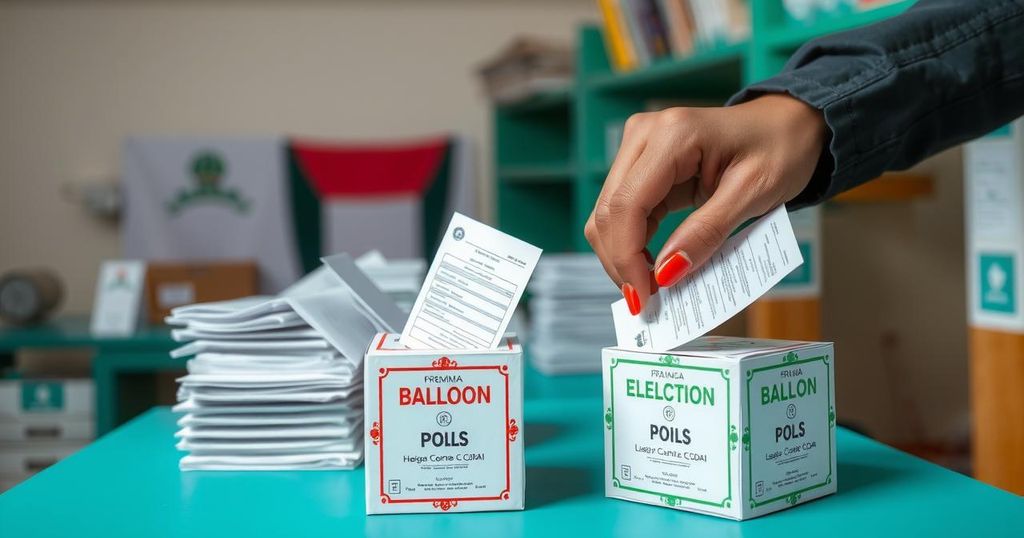Comoros Parliamentary Elections Amidst Controversy and Opposition Calls for Boycott

Voters in Comoros are casting ballots to elect members of the 33-seat parliament amid claims of electoral irregularities following President Azali Assoumani’s controversial reelection last year. Approximately 338,000 individuals are registered, and while some opposition parties call for a boycott, others insist on participating to challenge Assoumani’s rule. Results are expected by Friday.
Voters in Comoros are participating in parliamentary elections to fill the 33 seats of their national assembly. This electoral process comes one year after the re-election of President Azali Assoumani, which sparked controversy due to accusations of widespread electoral irregularities from the opposition, claims that are firmly denied by officials from the ruling party. Polling stations opened early on Sunday, with approximately 338,000 citizens registered to cast their votes in this significant event, the first parliamentary elections since January 2020.
The country’s Supreme Court has selected nearly 100 candidates to compete in the elections, amidst allegations from Assoumani’s adversaries regarding authoritarian practices. There are concerns that President Assoumani might be preparing his son, Nour El-Fath, to succeed him once his current term concludes in 2029. Assoumani has been in power since a coup in 1999 and has since secured victories in three subsequent elections. In 2024, he extended extensive powers to his son, assigning him responsibilities for coordinating government operations.
Although certain opposition parties, including Juwa under former President Ahmed Abdallah Sambi, have urged a boycott of the elections, others have dismissed this approach. Hamidou Karihila, an opposition candidate from the Hope of the Comoros party, stated, “The Azali regime is weakened… by participating in these elections we are contributing to further exposing the flaws in its system and accelerating its inevitable fall.” Election results are anticipated by Friday, marking a critical moment in Comorian politics.
The political landscape in Comoros has been significantly shaped by the governance style of President Azali Assoumani, who initially seized power through a coup in 1999 and has maintained authority through multiple elections. The opposition has frequently criticized his regime, alleging that he undermines democratic processes and consolidates power within his family. This election cycle, particularly in light of allegations regarding the previous electoral process, serves as a crucial juncture for Comoros as it strives to navigate issues of governance, legitimacy, and public trust amidst rising political tensions. The dynamics of this election reflect ongoing struggles for power and representation among the various political factions within the country.
In conclusion, the ongoing parliamentary elections in Comoros represent a highly contested political event, with significant implications for the future of governance in the archipelago. The marked division between the ruling party and opposition factions underscores deep-rooted concerns regarding electoral integrity and authoritarianism. As the people of Comoros make their voices heard at the polls, the outcome of these elections may well influence the nation’s trajectory and the political fate of its long-serving president and his administration.
Original Source: www.muswellbrookchronicle.com.au







